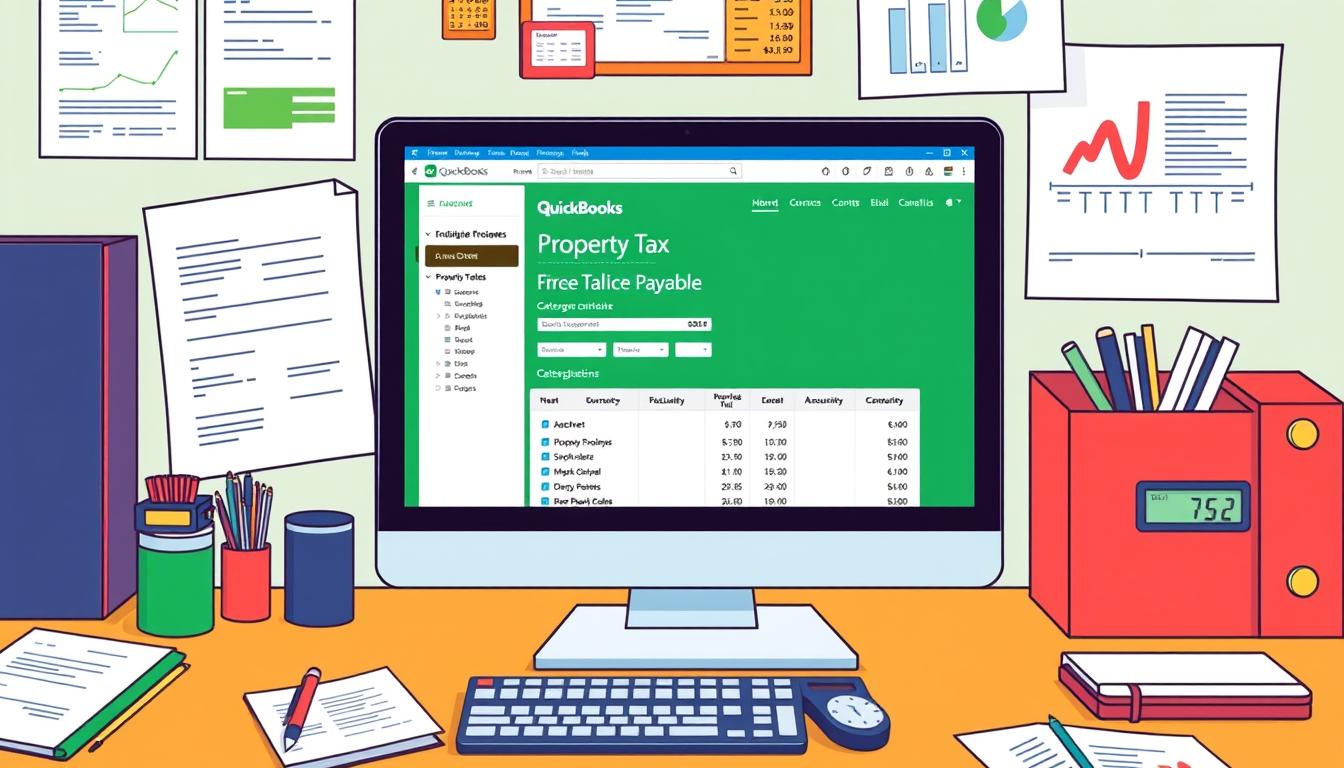
How much is Quickbooks
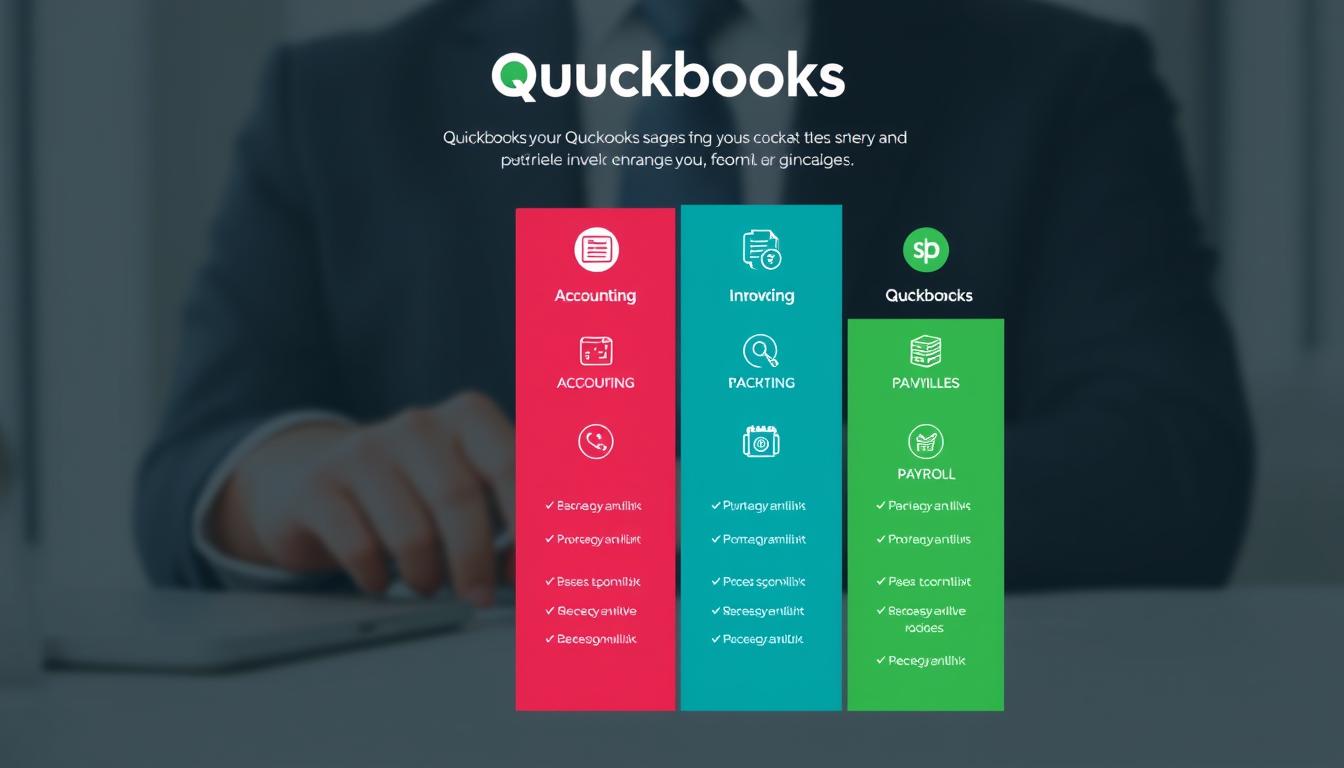
Table of Contents
Thinking about adding accounting software to your business? It’s important to know how Quickbooks pricing works. Quickbooks has many options for different business sizes. This means the cost can change based on what features you need, how many users, and if you choose online or desktop.
This guide will help you plan your Quickbooks budget. It will make your financial management better.
Key Takeaways
- Quickbooks offers multiple pricing tiers to accommodate various business needs.
- Understanding features and versions is key to evaluating Quickbooks cost.
- Quickbooks subscription fees may vary between online and desktop options.
- Budgeting for Quickbooks requires a thorough assessment of required functionalities.
- Exploring different pricing structures can help optimize financial management.
Understanding Quickbooks Pricing
The Quickbooks pricing structure is based on a subscription model. It’s designed to meet different business needs. Users can pick plans that fit their specific needs, making it important to understand the various costs.
- Simple Start: Great for sole proprietors needing basic features.
- Essentials: Good for small teams with more features like bill management.
- Plus: Best for larger businesses needing inventory tracking and project management tools.
Knowing these pricing tiers helps businesses make smart choices. They can assess their financial commitment to accounting software. Variables like company size and changing needs may affect which plan is best over time.
This flexible pricing shows Quickbooks’ adaptability. Businesses can upgrade or downgrade as their needs change. Users can confidently choose a plan that offers the best value.
Different Versions of Quickbooks
Knowing the different Quickbooks versions is key for businesses looking for good accounting tools. Quickbooks Online and Quickbooks Desktop are the main choices. Each meets different business needs and preferences.
Quickbooks Online is a cloud-based option. It lets users access their financial data from anywhere with internet. It’s great for teams that work remotely or travel a lot. Plus, it always has the latest features thanks to automatic updates.
Quickbooks Desktop runs on a computer. It gives users full control over their software. It’s best for complex reporting and specific industry needs. This makes it perfect for businesses with advanced accounting needs.
Choosing between Quickbooks Online and Desktop depends on your business style and needs. Each version has its own benefits and drawbacks. Think about how you work, who needs to access the data, and what accounting features you need.
| Feature | Quickbooks Online | Quickbooks Desktop |
|---|---|---|
| Accessibility | Cloud-based, accessible from anywhere | Installed on a single computer |
| Collaboration | Multiple users can work simultaneously | Limited to one user at a time unless multi-user setup is configured |
| Updates | Automatic updates without installation | Manual updates are required |
| Advanced Features | General accounting tools | Advanced reporting and industry-specific features |
Quickbooks Online vs. Desktop: Pricing Comparison
It’s important to know the differences in Quickbooks Online pricing and Quickbooks Desktop comparison when choosing for your business. Quickbooks Online has flexible plans starting at about $25 a month. This is great for freelancers and small businesses.
On the other hand, Quickbooks Desktop costs a one-time fee. Prices range from $299.95 for the Pro version to $1,213.00 for Enterprise. This version offers features like advanced reporting and inventory management.
| Features | Quickbooks Online | Quickbooks Desktop |
|---|---|---|
| Monthly Pricing | Starts at $25 | $299.95 one-time |
| Accessibility | Cloud-based | Desktop application |
| User Limit | Up to 25 users (higher plans) | Up to 30 users (multiple licenses) |
| Features Included | Basic Invoicing, Expense Tracking | Advanced Reporting, Inventory Management |
| Updates | Automatic updates | Manual updates required |
Choosing between Quickbooks Online and Desktop depends on your business needs. Knowing the pricing and features of each will help you pick the right one.
Factors Affecting Quickbooks Pricing
Several Quickbooks pricing factors play a big role in the cost of this accounting software. Businesses need to think about these to understand their expenses.
The size of the business is a key factor. Smaller companies have different needs than bigger ones. This leads to different subscription fees.
What features you need is also important. Quickbooks has many versions, from basic invoicing to advanced reporting. The features you choose can add to the cost.
The number of users is another cost factor. Adding more users means higher subscription fees. This affects the budget for Quickbooks.
Customization can also change the price. Services like payroll integration or advanced inventory management cost extra. This can increase your total spending.
| Pricing Factor | Description | Impact on Cost |
|---|---|---|
| Business Size | Based on the number of transactions and complexity of accounting needs. | Higher costs for larger businesses. |
| Required Features | Includes essential tools vs. advanced functionalities. | Premium features increase subscription fees. |
| Number of Users | Costs increase with each additional user accessing the software. | Variable according to user count. |
| Customization | Additional services like payroll and reporting add to expense. | Increases overall pricing. |
By carefully looking at these factors, businesses can pick the right Quickbooks plan. This helps manage costs well.
Monthly vs. Annual Subscription Costs
Choosing between Quickbooks subscription options can change your expenses a lot. Knowing the difference between monthly and annual costs helps with budgeting and running your business better.
Many businesses choose annual payments for Quickbooks savings. They find yearly plans can be cheaper than monthly ones. It’s important to think about managing cash flow versus saving money.
| Subscription Type | Monthly Cost | Annual Cost | Total Cost with Annual Payment | Potential Savings |
|---|---|---|---|---|
| Basic Plan | $25 | $240 | $300 | -$60 |
| Plus Plan | $40 | $480 | $600 | -$120 |
| Advanced Plan | $70 | $840 | $900 | -$60 |
For some, monthly payments work better with their budget. Each choice has its own benefits. It’s key to look at what you really need.
Looking at both Quickbooks options helps you get the features you need. It also helps with planning your finances. Knowing the monthly vs annual costs helps you budget better and make smarter financial choices.
Special Offers and Discounts for Quickbooks
Quickbooks offers a range of special offers and discounts for different users. Subscribers can enjoy promotional pricing at times. This includes temporary price drops or access to premium features at a lower cost.
Quickbooks also has discounts for schools and non-profits. These groups can get special Quickbooks discounts to meet their needs.
Seasonal promotions are another chance to save. Quickbooks often has limited-time offers. These deals can attract new users with great prices.
In short, using these Quickbooks offers can make your investment more affordable. It’s a smart way to manage your accounting needs without breaking the bank.
Inclusions with Quickbooks Packages
Knowing what’s included in Quickbooks packages helps businesses get the most out of this accounting software. Quickbooks Online and Quickbooks Desktop have different Quickbooks features for various needs. They offer benefits of Quickbooks that boost productivity and make financial management easier.
Features of Quickbooks Online
Quickbooks Online is perfect for businesses that like cloud-based solutions. It has key features like:
- Invoicing: Create and send invoices fast.
- Expense Tracking: Track and categorize expenses in real-time.
- Performance Reporting: Get financial reports to see how you’re doing over time.
- Multiple User Collaboration: Up to 25 users can work together at once.
- Integration with Third-party Apps: Connect with other important business tools easily.
Features of Quickbooks Desktop
Quickbooks Desktop is great for those who like a traditional approach. It has strong features like:
- Customization Options: Customize invoices, reports, and workflows to fit your business.
- Offline Access: Work offline, keeping your financial data safe.
- Advanced Inventory Management: Keep track of products and stock levels well.
- Comprehensive Reporting: Get detailed financial reports for better insights.
- Multi-company Support: Manage finances for multiple companies from one place.
Both versions have unique benefits of Quickbooks. This means users can pick the best option for their business needs and work style.
How to Choose the Right Quickbooks Plan for Your Business
Choosing the right Quickbooks plan is important. Business owners need to think about what their business needs. Knowing what your business needs helps you pick the best financial tools.
Assessing Your Business Needs
First, figure out what your business really needs. The type of business, how much money you handle, and specific features are key. For example, big businesses might need advanced reports and inventory tracking. Small businesses might just need basic invoicing and expense tracking.
Here are some things to think about:
- Type of industry: Each industry has its own financial needs.
- Transaction volume: If you handle a lot of transactions, you might need more features.
- Required functionalities: Think about what tools and reports you need every day.
Considering the Number of Users
The number of users is also important. Each plan supports a certain number of users, which affects the price. Make sure your team size fits the plan’s features. Before you decide, consider these points:
- Figure out how many users need access to the software.
- Think about if different users need different levels of access.
- Look at the cost of adding more users if needed.
Understanding these points makes choosing a Quickbooks plan easier. It ensures the plan meets your business’s needs now and in the future.
Cost-Saving Tips for Quickbooks Users
Managing expenses is key for businesses using Quickbooks. Using cost-saving strategies can greatly help your budget. Two main ways are using free trials and looking at other Quickbooks options.
Utilizing Free Trials
Free trials from Quickbooks are a great way to see if it fits your needs. These trials let you try out features without spending money. This way, you can decide if Quickbooks is right for you before buying a subscription.
Exploring Alternative Software
Looking at other software besides Quickbooks can also save money. There are many options out there that fit different budgets and needs. By researching, you might find a tool that’s cheaper and works better for you.
Integrations and Additional Costs with Quickbooks
Quickbooks can be integrated with many software apps, offering great benefits. But, these integrations come with costs. It’s key to know these costs to improve your accounting work. Quickbooks’ base price covers the basics, but you might need extra services for better performance.
Integrating Quickbooks with apps like payment processors or e-commerce sites can cost more. Each link-up might have its own fees, raising your total expenses. For instance, using PayPal or Stripe with Quickbooks might add a subscription fee or transaction costs. These fees can change based on the integration’s complexity and scope.
Adding extra Quickbooks services can make your work smoother and more accurate. If you want to automate tasks and cut down on errors, these integrations are worth it. Think about these points when looking at Quickbooks integrations:
- Cost of each integration
- Compatibility with existing systems
- Potential time savings and efficiency gains
- Long-term value versus immediate costs
By looking at these factors, businesses can make smart choices about Quickbooks integrations. This ensures they get the best value from their investment.
Customer Support and Its Impact on Pricing
When looking at Quickbooks, knowing about customer support is key. It’s especially important when thinking about pricing and support. Quickbooks offers different support levels, which can change the software’s cost.
These support levels affect how fast you get help and the quality of that help. Each plan has its own support options.
Quickbooks has several ways to help you:
- Online resources, such as help articles and community forums
- Chat support for quick questions and issues
- Phone support for more complex problems requiring detailed assistance
Each method has its own impact on your experience. Online resources are quick to access but might not solve all problems fast. Chat support is good for quick answers, but response times can vary. Phone support gives more personal help but might cost more.
In the end, looking at Quickbooks’ support options and costs shows how support affects both the user experience and pricing. A more expensive plan might offer better support, leading to more productivity and less downtime.
Conclusion
In this Quickbooks pricing summary, we’ve looked at the different pricing options and features. It’s key to know the difference between Quickbooks Online and Quickbooks Desktop. This helps businesses pick the right version for their needs.
When looking at business accounting solutions, think about the number of users, needed features, and budget. These factors help choose the best plan for your financial needs. The insights from this article can help you make a better choice.
Investing time in understanding Quickbooks pricing can greatly benefit your business. Now, take a closer look at your options. Find the best fit for your financial health and growth.
FAQ
What is Quickbooks pricing structure?
Quickbooks uses a subscription model with different prices. These prices depend on the features, how many users you need, and whether you choose Online or Desktop. The cost changes based on your business size and what services you need.
Are there any discounts or promotions available for Quickbooks?
Yes, Quickbooks sometimes has special deals, discounts, and offers for non-profits and schools. It’s a good idea to check their website or sign up for newsletters to find out about these deals.
How can I determine which Quickbooks plan is suitable for my business?
First, think about what your business needs. Consider the features you need and how many users will use it. Also, think about your business size and type to choose the right Quickbooks plan.
What features are included in the Quickbooks Online package?
Quickbooks Online offers invoicing, expense tracking, and performance reports. These features are great for those who want flexibility and can access their data from anywhere.
What are the differences between Quickbooks Online and Quickbooks Desktop?
Quickbooks Online is cloud-based, offering mobility and easy access. Quickbooks Desktop is installed software, ideal for those who prefer local control. Each has unique features and benefits for different business needs.
What factors can affect Quickbooks pricing?
Several things can change Quickbooks pricing. These include your business size, the features you want, how many users you need, and extra services like payroll. Customizing your plan can also affect the cost.
Is there a cost difference between monthly and annual Quickbooks subscriptions?
Yes, annual subscriptions often save money compared to monthly payments. It’s smart to think about your cash flow and payment schedule to choose the best option.
How do integrations impact Quickbooks costs?
Adding Quickbooks to other apps or services can cost extra. But, these integrations can make your accounting work more efficient. For many, the extra cost is worth it.
Can I try Quickbooks before committing to a subscription?
Yes, Quickbooks usually offers free trials. This lets you try out the features before you pay. It’s a good way to make sure it fits your needs.
How does customer support influence Quickbooks pricing?
The cost of customer support varies with Quickbooks plans. Higher plans often have better support, like online help, chat, and phone support. This can affect your experience and costs.
- Tags: intuit quickbooks, intuit quickbooks login, intuit quickbooks online, quickbook, quickbooks, quickbooks accounting software, quickbooks customer service, quickbooks customer service number, quickbooks desktop, quickbooks desktop 2024, quickbooks log in, quickbooks login, quickbooks login online, quickbooks online, quickbooks online accountant, quickbooks online accounting, quickbooks online customer service, quickbooks online login, quickbooks online pricing, quickbooks payroll, quickbooks self employed, quickbooks software, quickbooks support phone number, quickbooks time, quickbooks time login, quickbooks workforce
Top Products
- QuickBooks Desktop Pro 2024 US Version
- QuickBooks Desktop Pro 2023 US Version
- QuickBooks Desktop Pro 2022 US Version
- QuickBooks Desktop Premier 2024 US Version
- QuickBooks Desktop Premier 2023 US Version
- QuickBooks Desktop Premier 2022 US Version
- QuickBooks Desktop Accountant 2024 US Version
- QuickBooks Desktop Accountant 2023 US Version
- QuickBooks Desktop Enterprise 2024 US Version
- QuickBooks Desktop Enterprise 2023 US Version
- QuickBooks for Mac 2024
- QuickBooks for Mac 2023
Popular Posts

How to categorize property tax payable in quickbooks online
Knowing how to categorize property tax payable in QuickBooks Online is key for keeping your financial records right. Property tax payable is the amount your business owes in property taxes. It can greatly affect your financial health. By learning to categorize property tax well, businesses can make sure their financial statements show their true obligations.
This knowledge is crucial as we dive into the steps and best practices for handling property tax payable in QuickBooks Online.
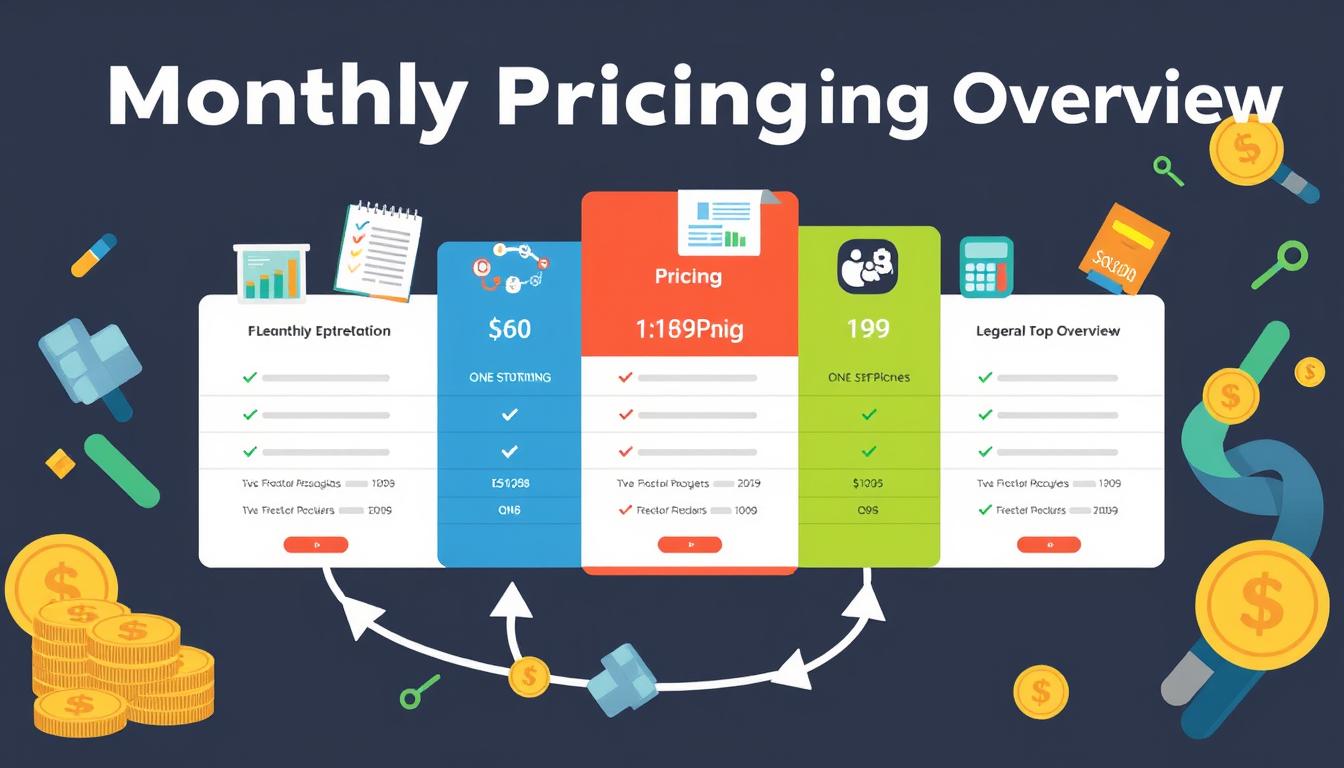
How much is quickbooks per month
Many users want to know the QuickBooks pricing for monthly costs. QuickBooks has various plans for different business needs. This lets users pick the right plan for their financial management.
What affects the QuickBooks monthly cost includes the QuickBooks edition, payment frequency, and extra features. This guide will explain the details of these plans. It will help you understand the costs of using QuickBooks for your business.

How does quickbooks work
QuickBooks is a key accounting software made by Intuit. It helps businesses manage their finances well. It works on a cloud-based platform, so users can access their financial data from anywhere.
This software makes tasks like bookkeeping, invoicing, and financial reporting easier. In this article, we’ll look at QuickBooks’ main features, its users, benefits, and challenges. We aim to help you understand how it can improve your financial management.

How do you record insurance payment in quickbooks
Recording insurance payments in QuickBooks is key for good insurance accounting. It helps business owners manage their money well and keep their books right. This is vital for the health of any business.
In this guide, we’ll show you how to record insurance payments easily. We’ll use QuickBooks guides and tips from accounting experts. This way, you can keep your financial records up to date.
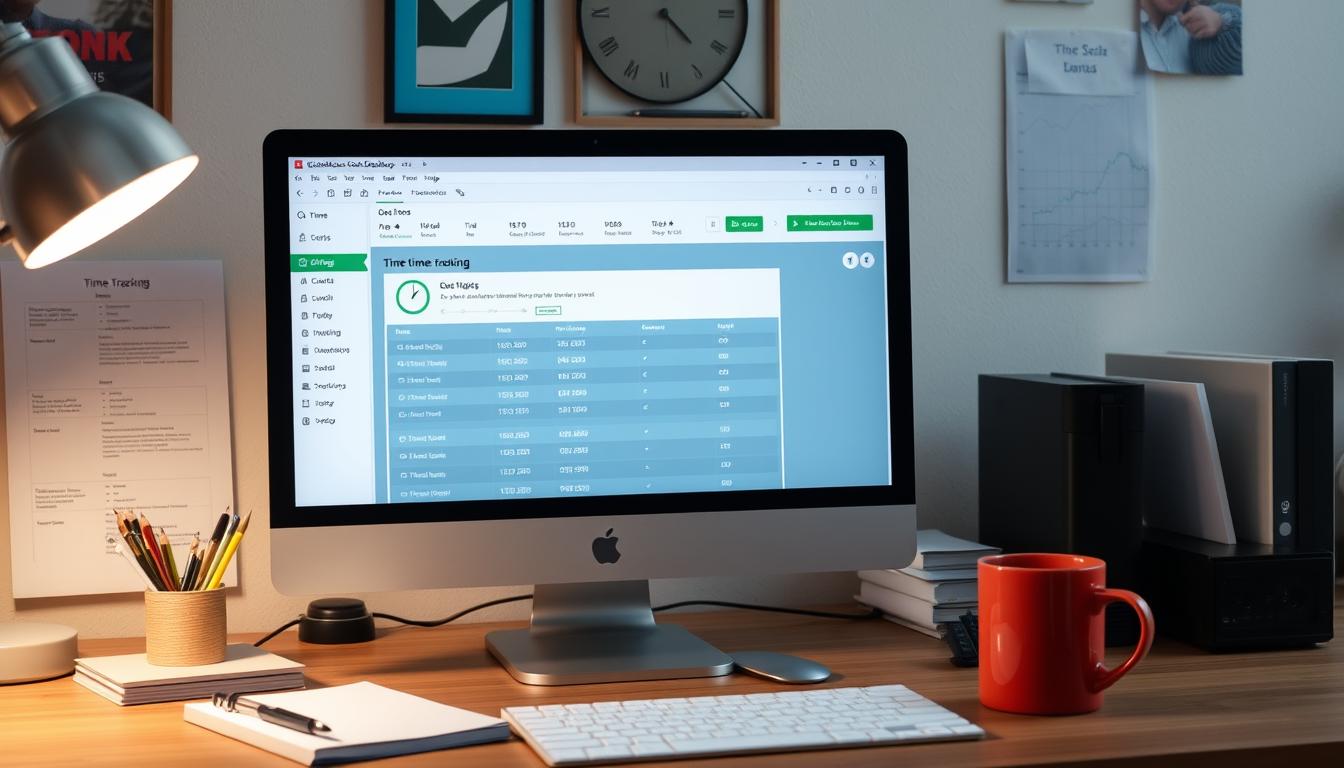
How do you clock in hours in quickbooks desktop
In today’s fast-paced world, tracking time well is key for good payroll management. This article will show you how to clock in hours in QuickBooks Desktop. It’s a top accounting software that makes managing tasks easier. By learning how to track time, businesses can work better and pay employees right.
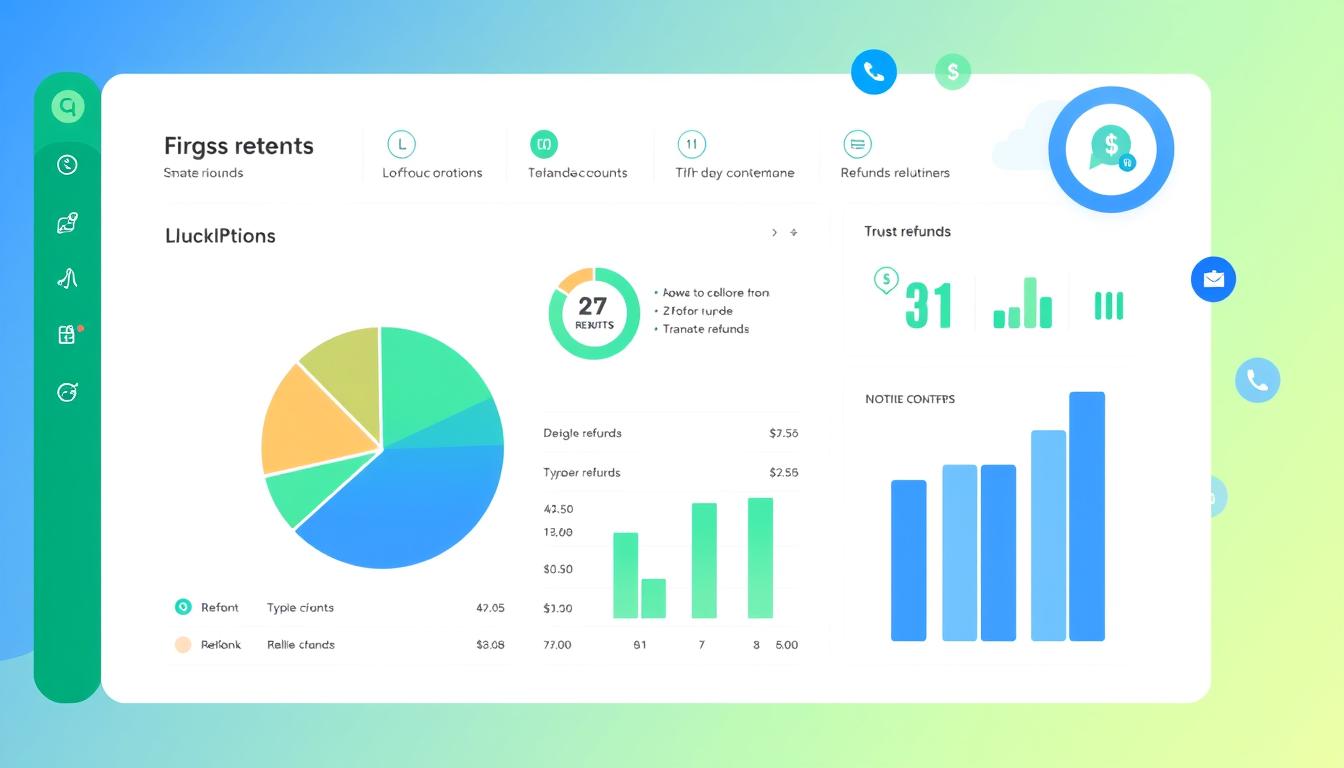
How are refunds categorized in quickbooks online
Knowing how to categorize refunds in QuickBooks Online is key for good financial management. It’s important to record refunds correctly to keep your finances clear. Businesses of all sizes can benefit from knowing how to do this right.
This knowledge helps make your financial records clear and accurate. It’s a basic step that can make a big difference.

Does quoteiq accept quickbooks online payments
Payment solutions are key in today’s business world. Many are looking into how platforms like QuoteIQ can improve their invoicing. A big question is: does QuoteIQ accept QuickBooks Online Payments? This article explores how QuoteIQ and QuickBooks Online Payments work together.
This shows how important it is to have good payment integration. It helps with cash flow and makes operations smoother. We’ll look at the benefits of using QuoteIQ with QuickBooks Online Payments. Plus, we’ll show you how to set it up.

Can you delete history under audit log quickbooks online
It’s important to know if you can delete entries from the audit log in QuickBooks Online. This is key for businesses that focus on financial accuracy and follow the rules. The audit log QuickBooks Online keeps a detailed history of changes to financial data. This ensures that all account activities are recorded clearly.
By tracking these changes, the audit log is crucial for good financial management. We will look into why the audit log matters and what happens if you try to delete its records. We’ll see how these actions impact your QuickBooks history.
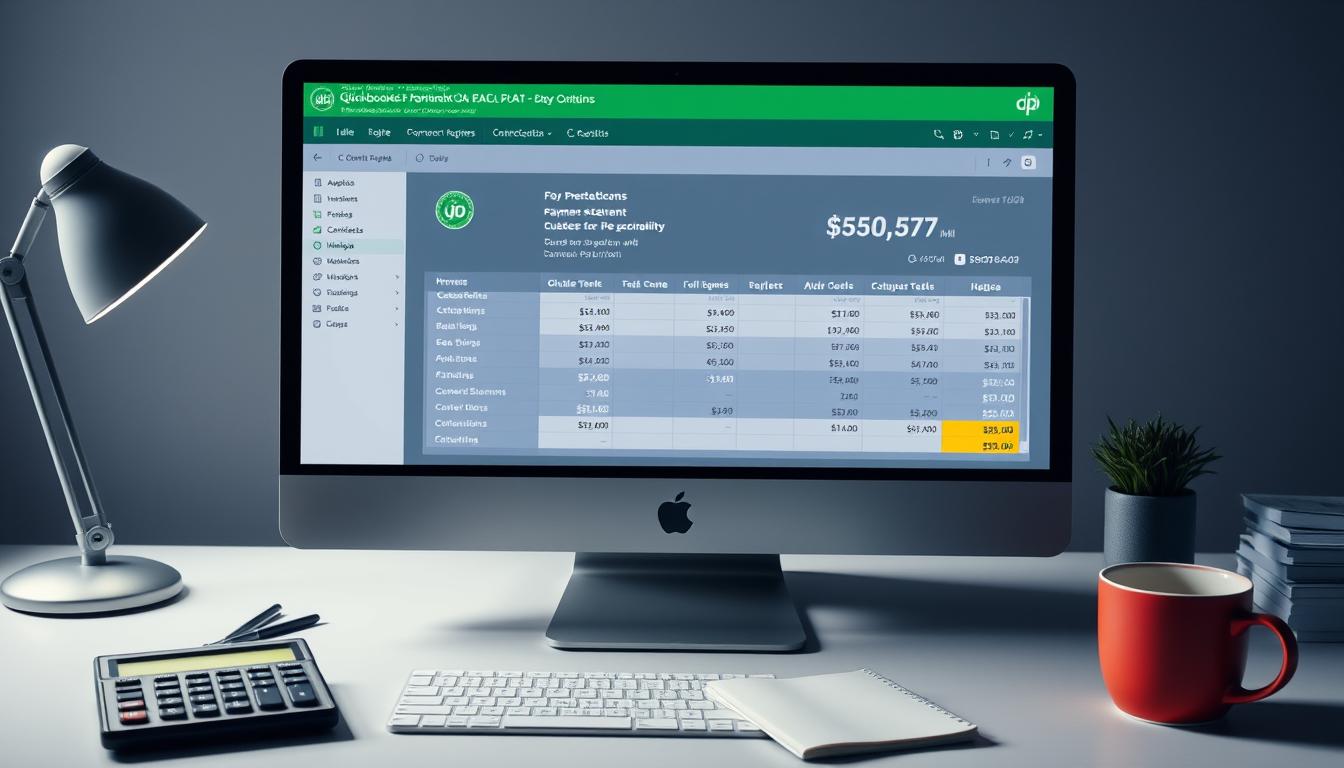
Can quickbooks recievepayment by statements rather that individual invoices
In today’s fast-paced world, businesses need quick and easy ways to handle payments. Many QuickBooks users wonder if they can pay by statements instead of invoices. This method makes accounting simpler for companies.
Using payment statements has big advantages over traditional invoices. QuickBooks helps businesses manage payments better. This article will show you how payment statements work in QuickBooks and how they can help your business.
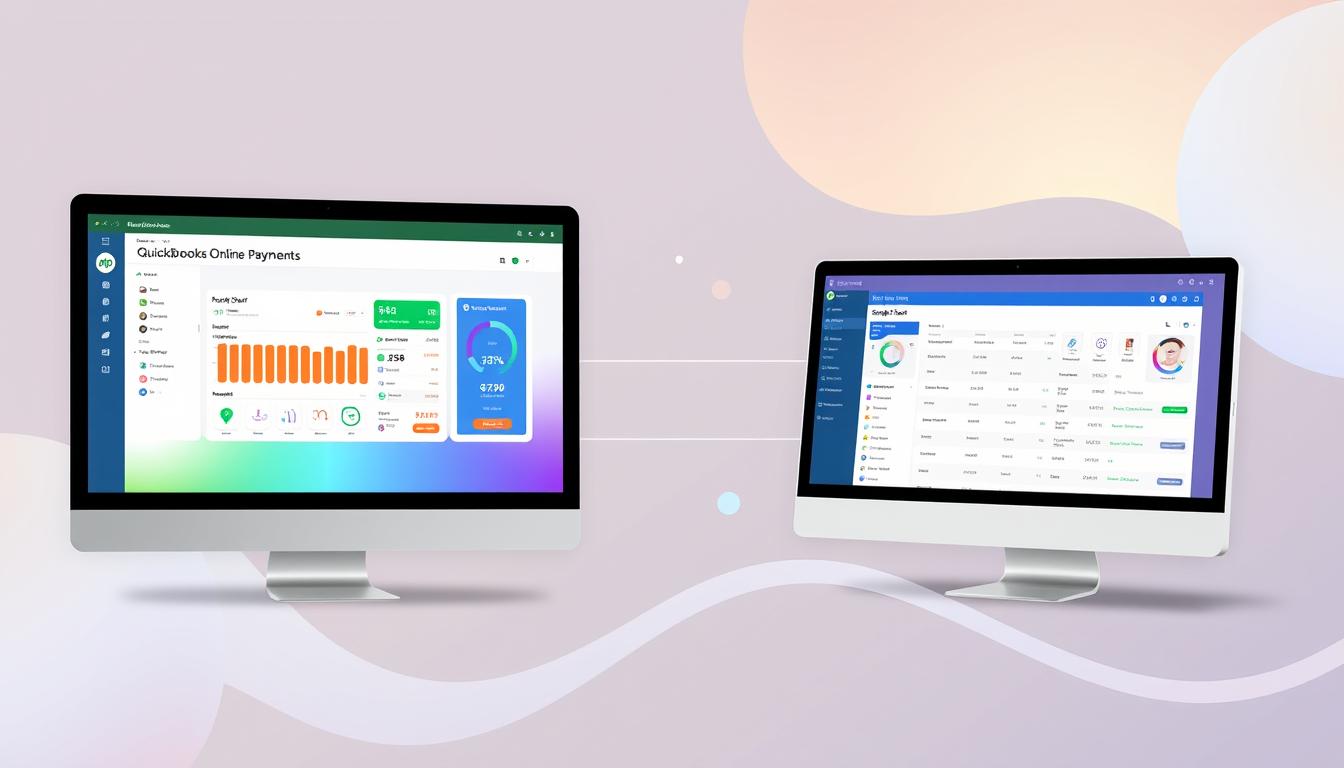
Can quickbooks online payments work with simple start
For small business owners, the question of whether QuickBooks Online Payments and QuickBooks Simple Start can work together is key. This integration is vital for managing finances effectively. It helps users handle transactions smoothly while using a basic accounting tool for solo businesses.
QuickBooks Online Payments lets users take payments online, making cash flow management easier. In this article, we explore how these two tools can boost efficiency for small businesses.